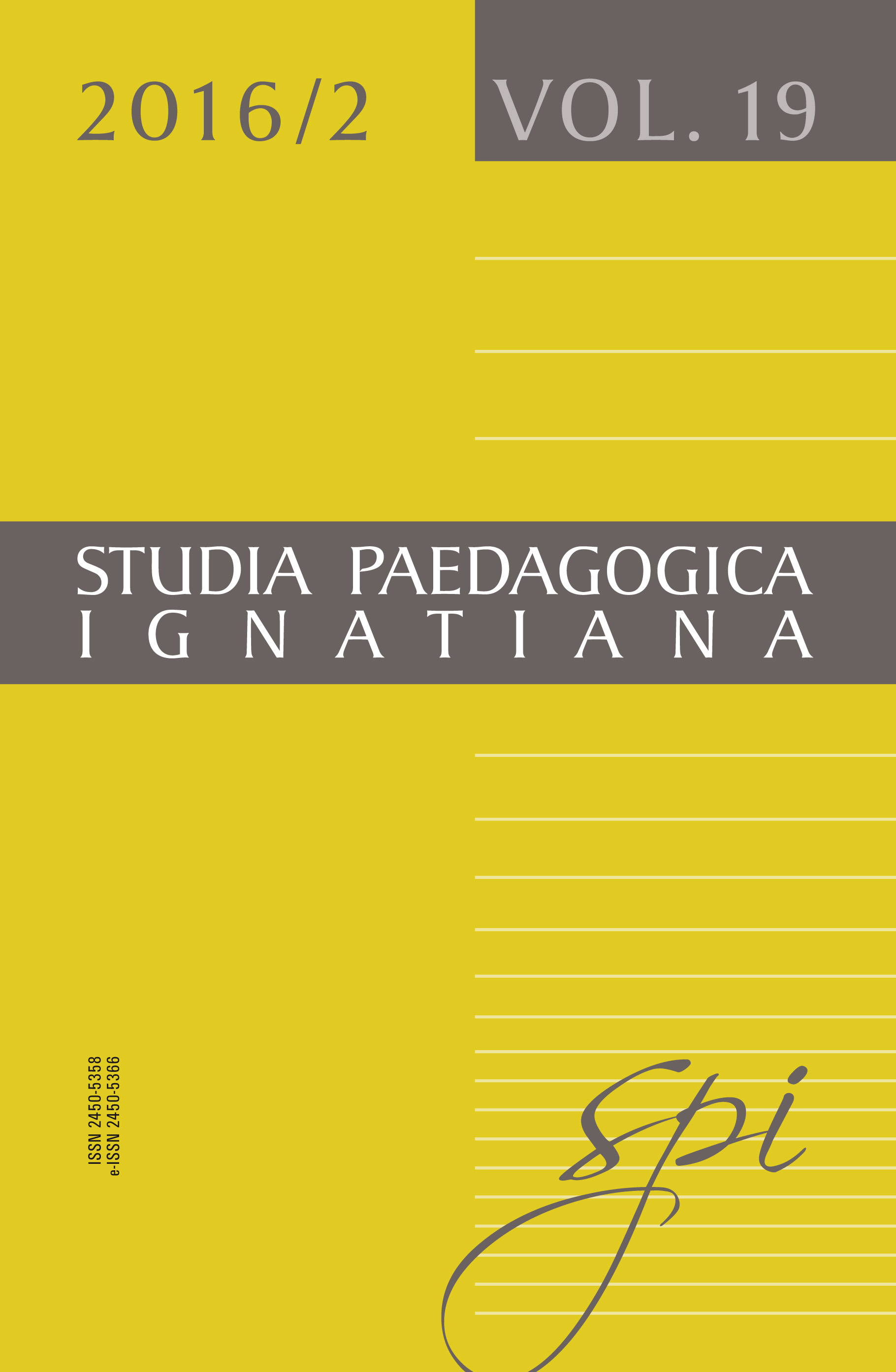All-Female Secondary Schools in Krakow at the Turn of the 20th Century
DOI:
https://doi.org/10.12775/SPI.2016.2.004Keywords
female education, secondary schools, Galicia, secondary school exit exams, university studiesAbstract
The issue of providing education to women became particularly important in the Polish territories during the second half of the 19th century. In the Austrian partition, women were allowed to take secondary school exit exams and enroll in universities in the 1890s. However, no female school at the time offered preparation to the aforementioned exams. As the government did not want to establish public all-female schools in the same way that it had created public all-male schools, a private solution was the only one. Private all-female schools emerged through a bottom-up effort as a response to the needs of society. The first school of this kind in Galicia – and all of the Polish territories – was established in Krakow in 1896. Before the outbreak of World War I, there were only four all-female secondary schools in Krakow. Still, with time, the concept of all-female secondary schools became very popular and more than half of the students of all-female secondary schools in the Habsburg Monarchy attended such schools in Galicia.
References
Bilewicz A., Prywatne, średnie, ogólnokształcące szkolnictwo żeńskie w Galicji w latach 1867–1914, (Acta Universitatis Wratislaviensis, No 1897. Prace Pedagogiczne CXVI), Wydawnictwo Uniwersytetu Wrocławskiego, Wrocław 1997.
Czajecka B., „Z domu w szeroki świat…”. Droga kobiet do niezależności w zaborze austriackim w latach 1890–1914, Universitas, Kraków 1990.
Dormus K., Kazimiera Bujwidowa 1867–1932. Życie i działalność społeczno-oświatowa, (Biblioteka Krakowska, nr 144), Wydawnictwo i Drukarnia „Secesja”, Kraków 2002.
Dormus K., Poetka i nauczycielka – Marcelina Kulikowska (1872–1910), „Rozprawy z Dziejów Oświaty” 2011, t. 48.
Dutkowa R., Żeńskie gimnazja Krakowa w procesie emancypacji kobiet (1896–1918), (Studia nad kształtowaniem się inteligencji w Polsce w XIX i XX wieku, t. 1), Instytut Historii UJ, Kraków 1995.
Dyskusja o szkołach średnich w tegorocznej sesji sejmowej, „Muzeum” 1905.
Hulewicz J., Sprawa wyższego wykształcenia kobiet w Polsce w wieku XIX, Polska Akademia Umiejętności, Kraków 1939.
Hulewicz J., Udział Galicji w walce o szkolę polską 1899–1914, Komitet Obchodu 25-lecia Walki o Szkołę Polską, Warszawa 1934.
Męczkowska T., Szkoły mieszane. Koedukacja, Wydawnictwo M. Arcta, Warszawa 1920.
Najdus W., Szkice z historii Galicji, t. 2: Galicja w latach 1905–07, Książka i Wiedza, Warszawa 1960.
Sempołowska S., Niedola młodzieży w szkole galicyjskiej. Kilka słów o narodowej szkole w Galicji, Kraków 1906.
Sprawa gimnazjum żeńskiego, Biblioteka Jagiellońska, rkps 7388 II.
Sprawozdanie Dyrekcji prywatnego wyższego gimnazjum żeńskiego im. Królowej Jadwigi w Krakowie („Pałac Spiski”) za rok szkolny 1905/06, Kraków 1906.
Sprawozdanie Dyrektora prywatnej średniej szkoły żeńskiej z programem gimnazjalnym w Krakowie za rok szkolny 1902/03, Kraków 1903.
Sprawozdanie Dyrektora prywatnej średniej szkoły żeńskiej z programem gimnazjalnym w Krakowie za rok szkolny 1905/06, Kraków 1906.
Sprawozdanie Towarzystwa szkoły gimnazjalnej żeńskiej za rok szk. 1899/1900, Kraków 1900.
Sprawozdanie Towarzystwa szkoły gimnazjalnej żeńskiej za rok szk. 1900/01, Kraków 1901.
Sprawozdanie Towarzystwa szkoły gimnazjalnej żeńskiej za czas od kwietnia 1905 r. do 21 grudnia 1905 r., Kraków 1905.
Stinia M., Rola społeczeństwa galicyjskiego jako organizatora średniego szkolnictwa prywatnego w okresie autonomii, w: Z dziejów polskiej kultury i oświaty od średniowiecza do początków XX wieku, red. K. Jakubiak, T. Maliszewski, (Szkoła, Państwo, Społeczeństwo, t. 1), Oficyna Wydawnicza Impuls, Kraków 2010.
W sprawie prywatnej średniej szkoły żeńskiej w Krakowie. Odpowiedź Zarządu Towarzystwa szkoły gimnazjalnej żeńskiej na dwa artykuł „Czasu”, Kraków 1905.
Zachara J., Historia pierwszego na ziemiach Polski Gimnazjum Żeńskiego im. E. Plater w Krakowie. (Przemówienie na uroczystości czterdziestolecia), Kraków 1937.
Downloads
Published
How to Cite
Issue
Section
License
By submitting an article, the author declares that:
they are the author of the article (hereinafter referred to as the Work) and:
- is entitled to exclusive and unlimited copyright to the Work,
- is entitled to dispose of the copyrights to the Work.
The Author grants the Jesuit University Ignatianum in Cracow a free, non-exclusive, territorially unlimited license to use the Work in the following fields of exploitation:
- publishing the Work in paper, digital or magnetic form;
- multiplying the work by any method, without limiting the number of editions or copies;
- distribution of the work and its copies in any form, including marketing, sales, lending, and lease;
- placing the work in a computer memory;
- distribution of the work in information networks, including the Internet;
- public performance, exhibition, display, reproduction, broadcasting and re-broadcasting, as well as making the Work available to the public in such a manner that everyone could have access to it at a time and place chosen by themselves;
- within the scope of dependent rights to the Work, covering, in particular, the right to make necessary changes to the Work, resulting from editorial and methodical preparation, as well as to make translations of the Work into other languages.
The license right shall be transferred the moment of transfer of the Work to the Jesuit University Ignatianum in Cracow. The Jesuit University Ignatianum in Cracow is entitled to grant sub-licenses to the Work in terms of the right granted. The license shall be limited in time for a period of 15 years from the date it is granted.
Stats
Number of views and downloads: 637
Number of citations: 0



